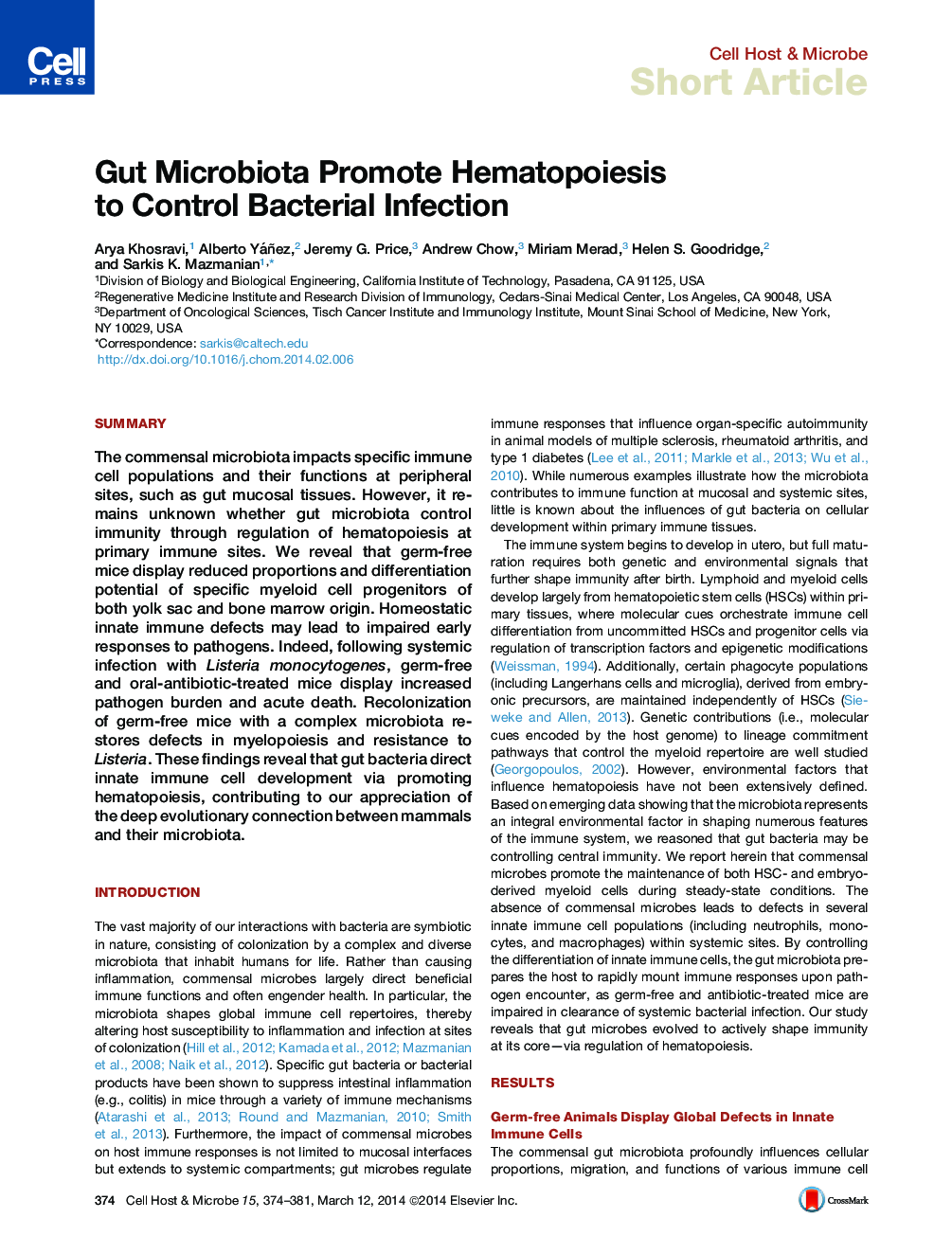| Article ID | Journal | Published Year | Pages | File Type |
|---|---|---|---|---|
| 4361081 | Cell Host & Microbe | 2014 | 8 Pages |
•Germ-free animals display a global defect in peripheral innate immune cells•Gut microbes impact both yolk sac- and stem cell-derived myeloid cell development•The microbiota promotes host resistance to systemic bacterial infection•Oral antibiotics impair myelopoiesis, causing transient immune suppression
SummaryThe commensal microbiota impacts specific immune cell populations and their functions at peripheral sites, such as gut mucosal tissues. However, it remains unknown whether gut microbiota control immunity through regulation of hematopoiesis at primary immune sites. We reveal that germ-free mice display reduced proportions and differentiation potential of specific myeloid cell progenitors of both yolk sac and bone marrow origin. Homeostatic innate immune defects may lead to impaired early responses to pathogens. Indeed, following systemic infection with Listeria monocytogenes, germ-free and oral-antibiotic-treated mice display increased pathogen burden and acute death. Recolonization of germ-free mice with a complex microbiota restores defects in myelopoiesis and resistance to Listeria. These findings reveal that gut bacteria direct innate immune cell development via promoting hematopoiesis, contributing to our appreciation of the deep evolutionary connection between mammals and their microbiota.
Graphical AbstractFigure optionsDownload full-size imageDownload high-quality image (290 K)Download as PowerPoint slide
